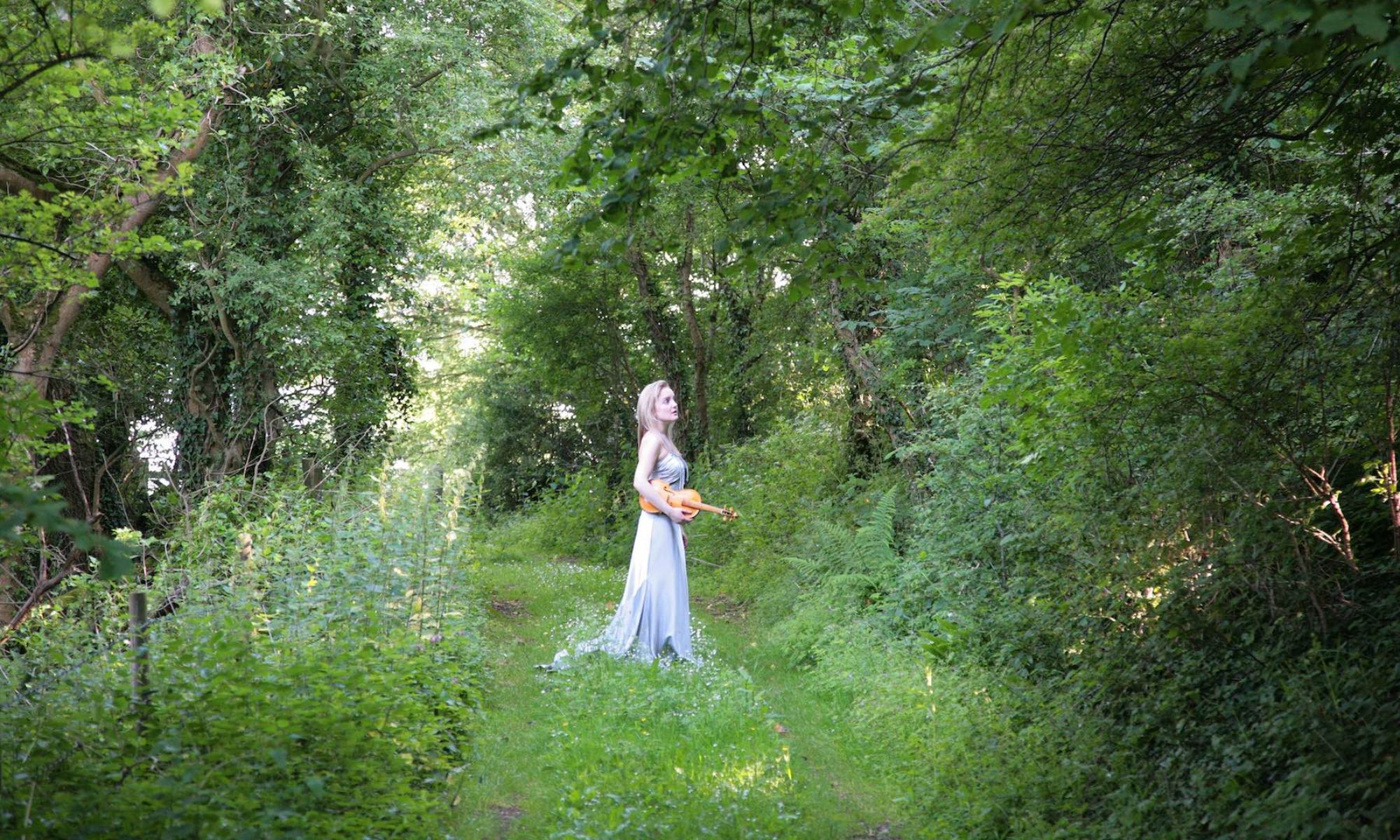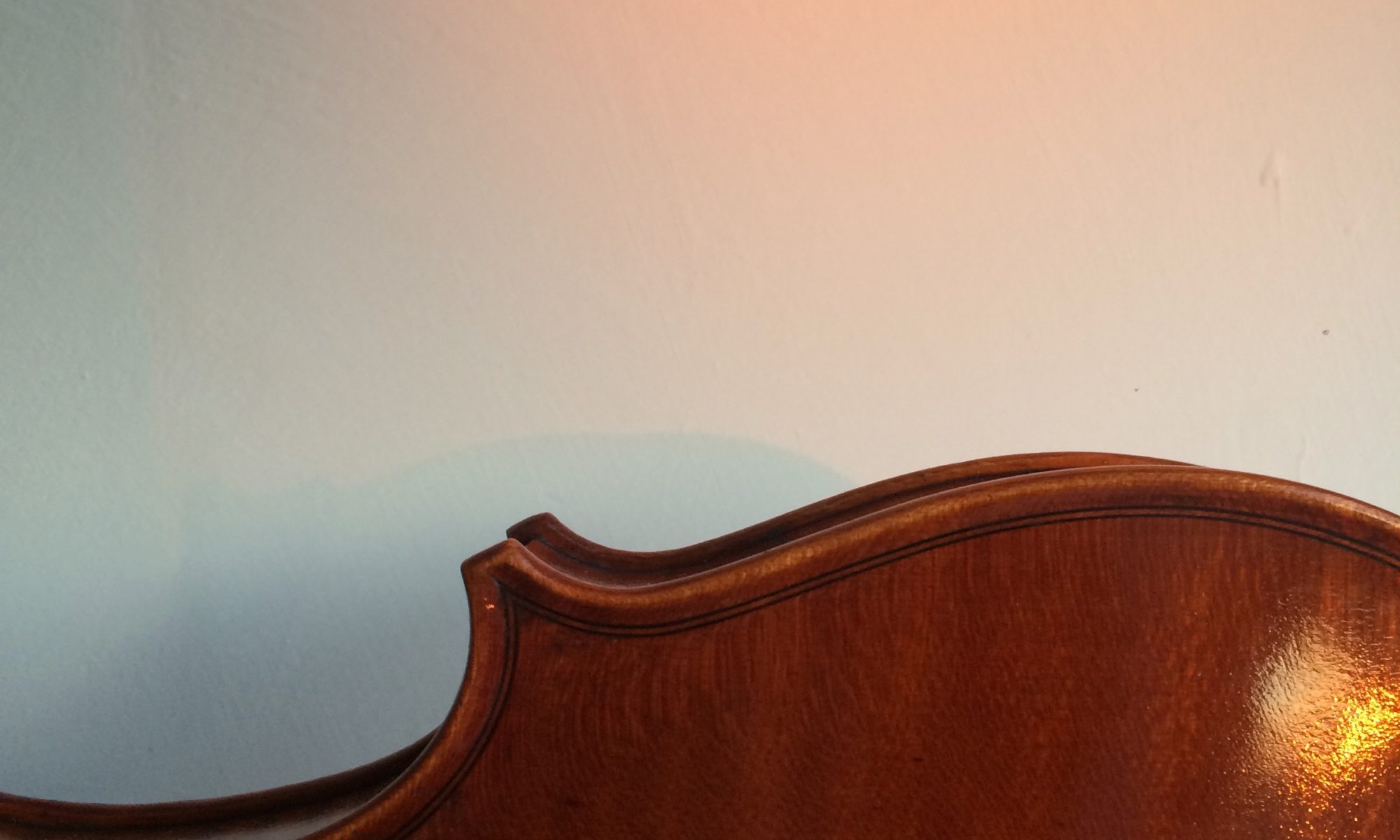Here are some tips that violin students might find useful.
Disclaimer: the versatility of the violin is one of its glories, and you’ll find it in many different musical cultures, from Carnatic music to Classical Arabic music to many different folk musics. Here, I’m taking as my jumping-off point what may conveniently be described as ‘Western Classical’ violin training. Some of what I say applies more widely.
1. Get a great teacher.
I don’t necessarily mean Great with a capital G. I mean that with the violin it’s easy to mess around with your physical wellness, and to tense muscles that don’t need to be tensed (in your neck, jaw, back… it’s terrifying really). You need careful guidance to help you to play optimally. To trust your instinctive musicianship alone to give you an easy and effective playing style, and a command of the techniques that will help you to communicate as a musician, would probably be optimistic.
Now, how do you (or your parents) know who is a great teacher when you’re just starting out? It’s tricky, and everyone at any given moment is just doing their best. In a rural area, there may be limited options. (I grew up in the remotest bit of Cornwall, so I’m not being patronising). Look around, look at more senior pupils, ask yourself whether they look tense or free, trust any instinct that is telling you that it may be time to move on (this is true generally in life), and be prepared to travel or otherwise make sacrifices if it is at all possible for you to do so.
2. Really put the work in.
As you sow, so shall you reap. Classic violin studies teach you an awful lot, because they pose problems that you have to solve. As you solve them, you become a better violinist, and you’ll find yourself equipped to say an awful lot of things musically.
And while you spend time figuring things out, you also immerse yourself in the language of classical harmony and the way it ebbs and flows.
You’ve got to put the work in. I still remember going to see an artist called Celloman when I was about 14, and chatting to the violinist in his band. His tip? ‘Do Sevcik.’
So, cool musicians who play and improvise on festival stages have Sevcik behind them. Because it helped them to play their instruments well.
I don’t advocate notching up four hours of Sevcik per day for the sake of it with no thinking behind it other than the idea that it will somehow make you a better person if you can stay sane whilst doing ridiculously repetitive violin exercises. I suggest seeing what the different books can help you with (wrist flexibility, arm fluency, being able to, you know, move your fingers fast and put them down in the right places with ease; basics like that) and devoting time, intelligently, to letting the results show.
Classically, Mazas and Kayser come before Kreutzer. Do you have a switched-on teacher who gets you to do them? Good for you! Does she ask you to memorise them? Good for you! The earlier you do this stuff, the better, because your brain is really open and quick to learn when you’re young, trust me. If you’re blessed with the opportunity and the time to put some serious work in when you’re young – do it.
Oh, and scales are really useful. That Carl Flesch book is great. Do them.
Disclaimer 1: Be careful of your health. Be sensible.
This is very important. You will, in your core, know the difference between caring for yourself and being lazy. You will know when you’ve been indoors too much. You will know when it’s time to get outside or just do something else. If you don’t know, your body or your mind will override your will, and send you a pretty unequivocal message.
Work hard. But listen to yourself; the world is not interested in self-punishment or inefficient work for the sake of it.
Disclaimer 2: Work intelligently.
Now, working hard also means working intelligently. Those studies? Make sure they’re in tune. Play them slowly. There’s no shame in playing something slowly but knowing that it’s accurate. It’s depressing to hear people practising flashy violin stuff really fast – with every note slightly off.
There’s a lot to be said about slow practice. I’d better save it for another post.
See how things break down. Analyse harmony. Try different rhythms. You know those tricks. Keep your mind engaged. I don’t believe that a bored mind will be learning very much.
And be aware of how you feel. Only you know how you feel, and the best person to monitor any tensions that may be coming up is you. (Here’s a post about me deciding to play my baroque violin in a radically different position, largely because I didn’t want to experience a subtle tension in my trapezius).
Also, are you still breathing deeply?
Awareness of yourself is part of intelligent practising.
3. Spend a bit of time practising ensemble pieces.
This is good practice for professional life, and it means that you have more fun when you’re in orchestra. And your string quartet will be loads better if you’ve worked on your part with the same attention you give to your solo pieces. The key? Plan the time. And whilst on the subject…
4. Don’t be that person who practises the Tchaikovsky violin concerto (ineffectively) during orchestra rehearsal breaks.
Because there will always be someone else playing the Brahms or Sibelius. And it’s all annoying.
5. Try to be a musician, and not just a violinist.
We talk about practice a lot, but there’s also listening and analysis and thinking to be done. Think about what you want to communicate when you play.
6. Think about time allocation.
How important is violin compared to, say, academic work? Many wonderful musicians are also extremely academic. Some don’t consider themselves to be so, in the conventional sense. My advice would be not to pigeonhole yourself, because you don’t know what you’ll want in the future. And what about the research skills that might enhance your musicianship? I got 8 A*s at GCSE, but I think that with a bit more planning I could have got 10 without my violin suffering. Planning is half the battle when it comes to student life. And afterwards as well.
You might also think very seriously and decide exactly how you will prioritise violin, to the possible detriment of other things. That’s also OK. But don’t limit yourself unnecessarily.
Then again, if you want to be a musician, don’t be afraid to go for it; don’t think that you should dilute yourself.
7. And stay focused.
You’ll learn to balance your interests, and to enjoy the interplay, the way in which different styles interact and make a musician of you.
Have diverse musical interests. That’s good. I’m really glad I played all sorts of stuff as a teenager. (General life advice: take every opportunity to remind yourself that the world and its cultures are practically limitless). But when it comes to your early studies, time is limited, and it’s good to make sure you have the strongest foundation (see above).
When you do diversify, stay relaxed. Sounds obvious. But I remember getting anxious thinking that every morning I must by obligation do my usual round of Schradieck on the ‘modern’ violin and then repeat the exact same thing again on the baroque one, because it’s a different instrument, or something. This was silly.
8. Don’t compare.
Let others inspire you, but don’t define yourself in relation to others.

